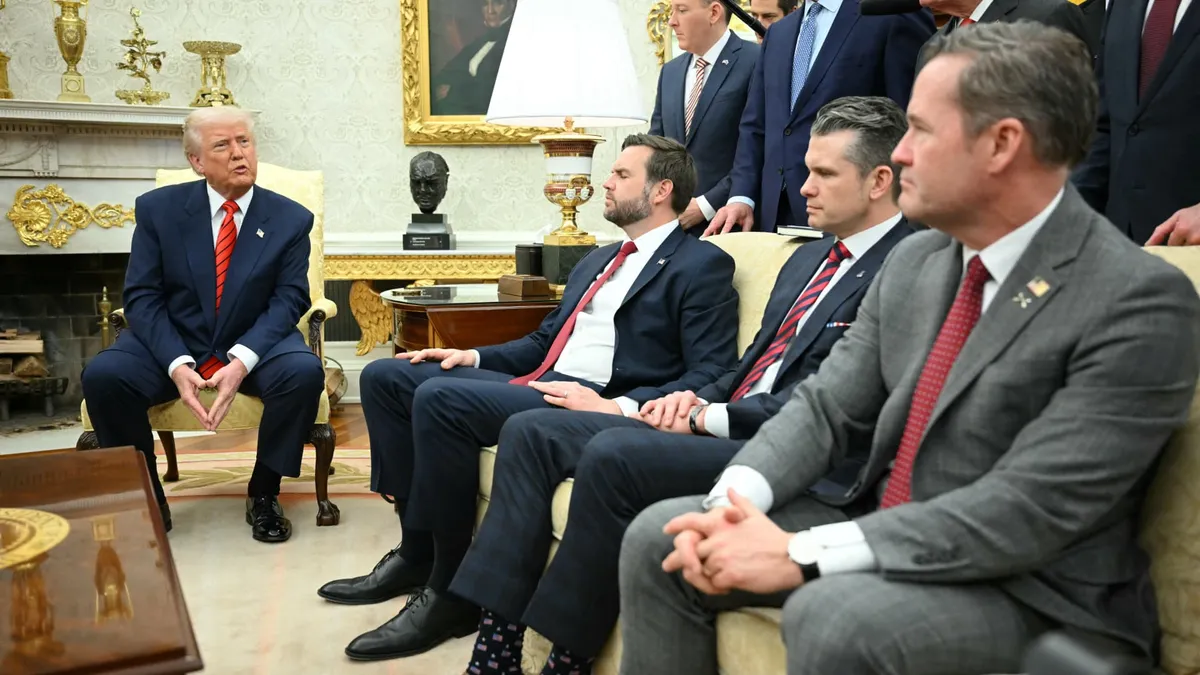
On Tuesday, President Donald Trump expressed that he was not upset with national security advisor Michael Waltz despite recent reports indicating a significant breach of protocol. This incident involved the addition of journalist Jeffrey Goldberg to a sensitive text thread where high-ranking officials discussed impending military strikes. In a phone call with NBC News, Trump stated, "Michael Waltz has learned a lesson, and he's a good man," affirming his continued confidence in his national security aide.
When pressed about how Goldberg, the editor in chief of The Atlantic, came to be included in the controversial text thread—which featured prominent figures such as Vice President JD Vance and Defense Secretary Pete Hegseth—Trump attributed the mishap to a lower-level staffer. "It was one of Michael's people on the phone. A staffer had his number on there," the president explained. This incident has raised serious questions about communication protocols within the administration.
Goldberg made headlines with a bombshell article published on Monday, revealing that his contact information was added to a Signal group chat on March 13. This chat, named the "Houthi PC small group," outlined discussions regarding military strategies related to U.S. bombing attacks on Houthi targets in Yemen, which were executed just two days later, on March 15. The list of participants in this thread included key Trump administration officials such as Marco Rubio, Tulsi Gabbard, John Ratcliffe, and Scott Bessent.
A spokesperson for the National Security Council confirmed the legitimacy of the Signal group to The Atlantic, stating, "We are reviewing how an inadvertent number was added to the chain." However, Trump and his administration have pushed back against Goldberg's portrayal of the situation, arguing that the discussions were not related to military plans. "Nobody was texting war plans. And that's all I have to say about that," stated Hegseth on Monday afternoon.
White House Press Secretary Karoline Leavitt supported Hegseth's claim, asserting that no war plans were discussed and denying the transmission of any classified information in the Signal thread. In response to these denials, Goldberg firmly stated, "That's a lie. He was texting war plans, he was texting attack plans," during a CNN interview on Monday night, intensifying the debate surrounding this sensitive issue.
In the wake of these developments, Gabbard and Ratcliffe are scheduled to testify before the Senate Intelligence Committee on Tuesday morning. Their testimony will take place during the annual Worldwide Threats hearing, which is set to begin at 10 a.m. ET. This hearing could provide further insights into the implications of the text thread incident and its impact on national security.